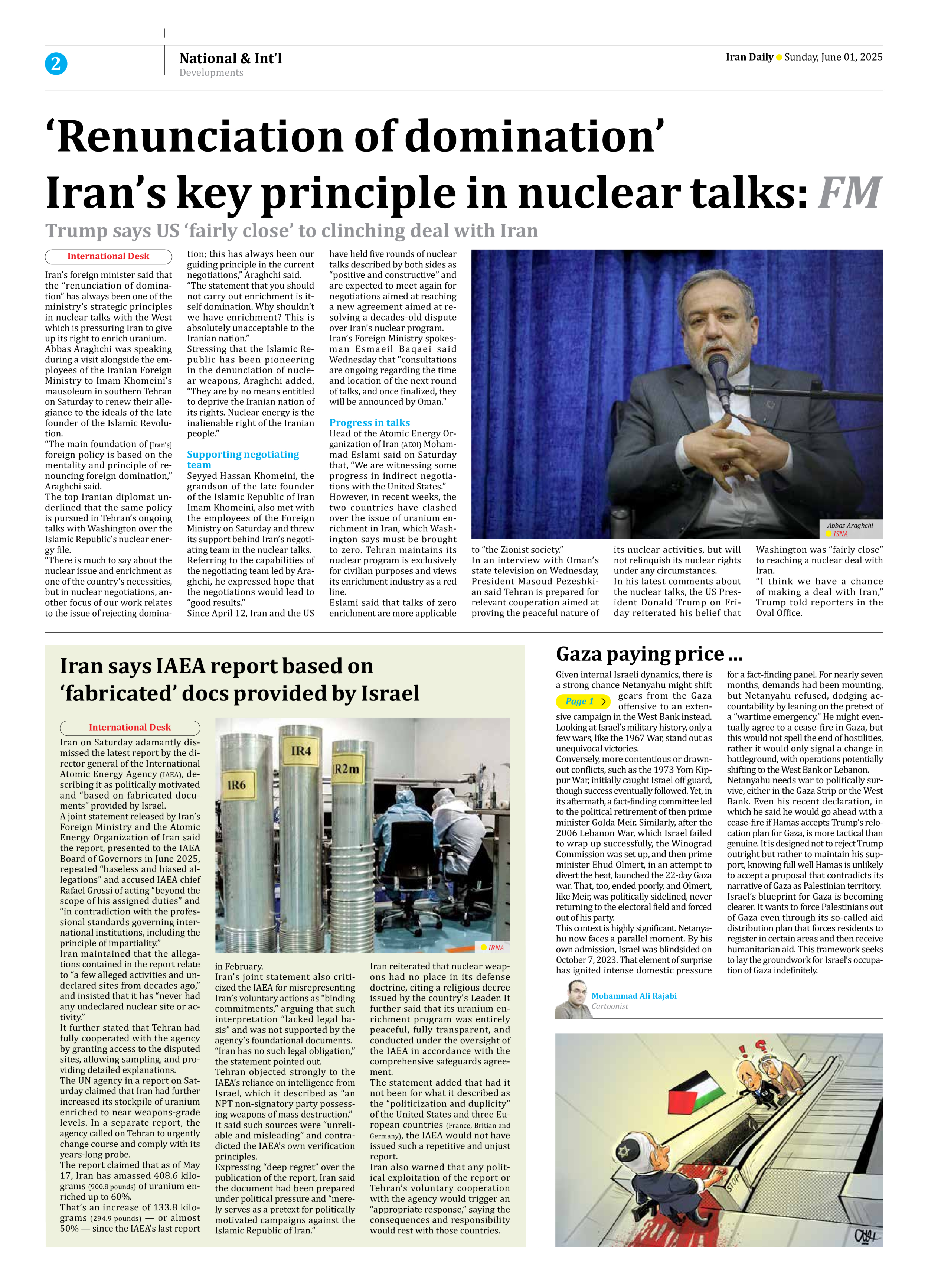
Iran says IAEA report based on ‘fabricated’ docs provided by Israel
Iran on Saturday adamantly dismissed the latest report by the director general of the International Atomic Energy Agency (IAEA), describing it as politically motivated and “based on fabricated documents” provided by Israel.
A joint statement released by Iran’s Foreign Ministry and the Atomic Energy Organization of Iran said the report, presented to the IAEA Board of Governors in June 2025, repeated “baseless and biased allegations” and accused IAEA chief Rafael Grossi of acting “beyond the scope of his assigned duties” and “in contradiction with the professional standards governing international institutions, including the principle of impartiality.”
Iran maintained that the allegations contained in the report relate to “a few alleged activities and undeclared sites from decades ago,” and insisted that it has “never had any undeclared nuclear site or activity.”
It further stated that Tehran had fully cooperated with the agency by granting access to the disputed sites, allowing sampling, and providing detailed explanations.
The UN agency in a report on Saturday claimed that Iran had further increased its stockpile of uranium enriched to near weapons-grade levels. In a separate report, the agency called on Tehran to urgently change course and comply with its years-long probe.
The report claimed that as of May 17, Iran has amassed 408.6 kilograms (900.8 pounds) of uranium enriched up to 60%.
That’s an increase of 133.8 kilograms (294.9 pounds) — or almost 50% — since the IAEA’s last report in February.
Iran’s joint statement also criticized the IAEA for misrepresenting Iran’s voluntary actions as “binding commitments,” arguing that such interpretation “lacked legal basis” and was not supported by the agency’s foundational documents.
“Iran has no such legal obligation,” the statement pointed out.
Tehran objected strongly to the IAEA’s reliance on intelligence from Israel, which it described as “an NPT non-signatory party possessing weapons of mass destruction.”
It said such sources were “unreliable and misleading” and contradicted the IAEA’s own verification principles.
Expressing “deep regret” over the publication of the report, Iran said the document had been prepared under political pressure and “merely serves as a pretext for politically motivated campaigns against the Islamic Republic of Iran.”
Iran reiterated that nuclear weapons had no place in its defense doctrine, citing a religious decree issued by the country’s Leader. It further said that its uranium enrichment program was entirely peaceful, fully transparent, and conducted under the oversight of the IAEA in accordance with the comprehensive safeguards agreement.
The statement added that had it not been for what it described as the “politicization and duplicity” of the United States and three European countries (France, Britian and Germany), the IAEA would not have issued such a repetitive and unjust report.
Iran also warned that any political exploitation of the report or Tehran’s voluntary cooperation with the agency would trigger an “appropriate response,” saying the consequences and responsibility would rest with those countries.







